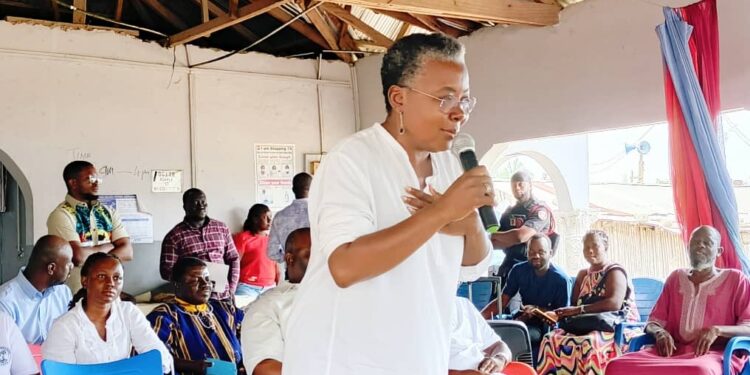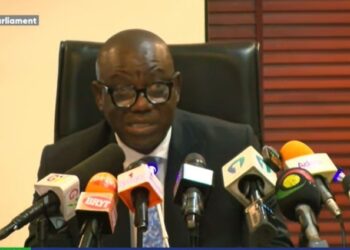The Minister for Fisheries and Aquaculture Development, Hon. Emelia Arthur, has embarked on a working visit to seven coastal communities in the Ahanta West Municipality as part of ongoing national consultations on the establishment of Marine Protected Areas (MPAs).
The visit, which took place on Tuesday, June 24, 2025, brought the Minister and her team face-to-face with fishers and traditional leaders in the affected communities to discuss key concerns surrounding Ghana’s fisheries sector and the proposed MPAs.
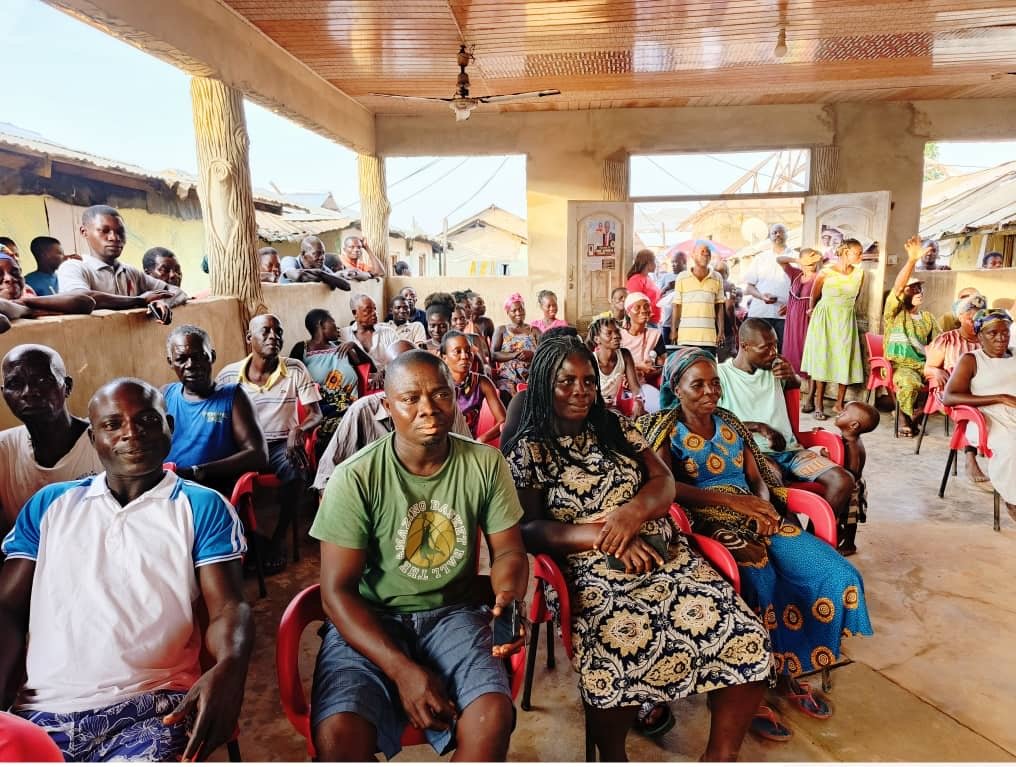
The communities visited included Egyambra, Miemia, Awona Beach, Princess Town, Aketakyi, Cape Three Points, and Akwidaa — all of which are located along the rich coastal belt of the Western Region and are heavily dependent on fishing for their livelihoods.
Accompanied by the Municipal Chief Executive of Ahanta West and members of the Marine Protected Areas Committee, Hon. Emelia Arthur engaged the fishers in open dialogue sessions, listening to their views, answering questions, and explaining the rationale behind the creation of MPAs.
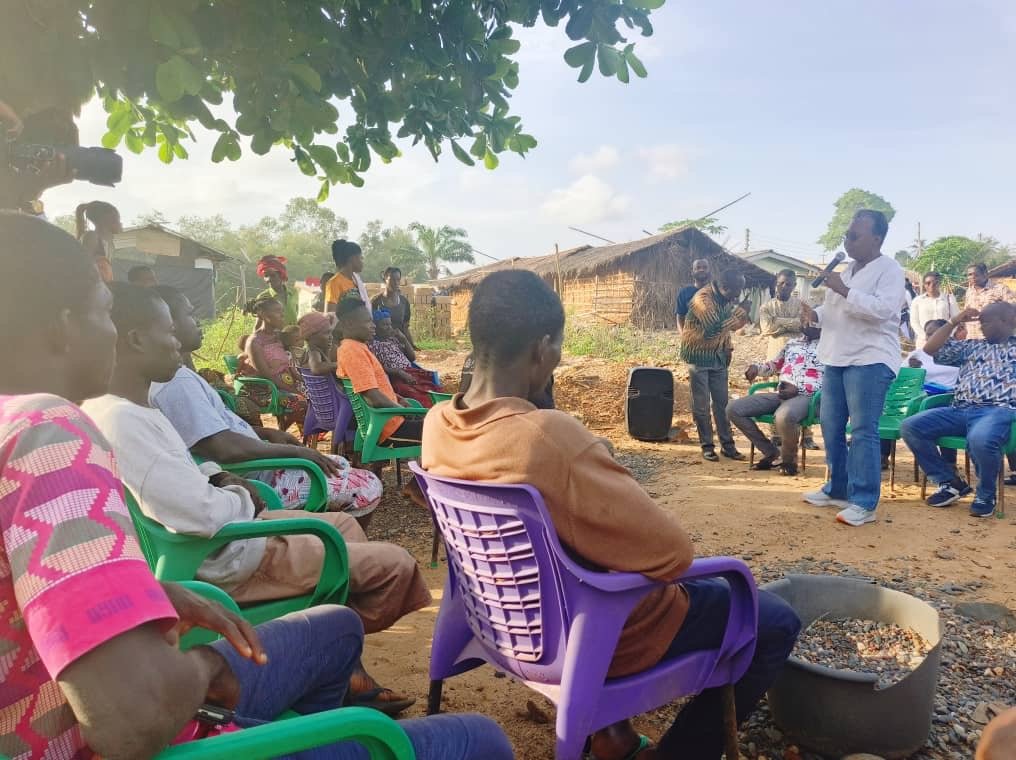
According to the Minister, the MPAs are not intended to take away the livelihoods of fisherfolk, but rather to protect and replenish Ghana’s marine resources, which are under increasing threat from overfishing, illegal activities, and environmental degradation.
“This engagement is to ensure that our marine conservation efforts are not top-down, but rather inclusive and based on science, local knowledge, and the lived realities of our fishing communities,” she stated.
The Minister assured the communities that the government would continue to involve them at every stage of the process and that the final decisions on the MPAs would reflect both environmental sustainability and social equity.
The consultations also touched on other pressing issues in the fisheries sector, including illegal fishing practices, dwindling fish stocks, and the need for youth empowerment and alternative livelihoods in fishing communities.
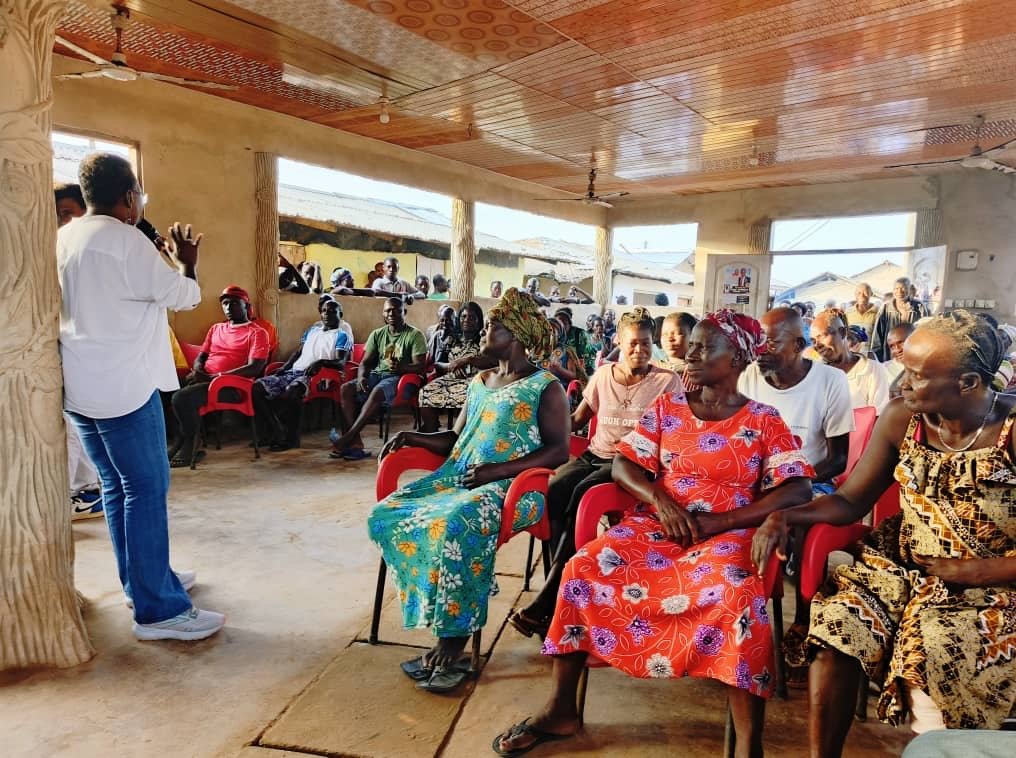
Residents welcomed the visit, expressing appreciation for the opportunity to contribute to national policy decisions that directly affect their daily lives. Some, however, raised concerns about the potential impact of the MPAs on their incomes and called for compensation or support for alternative income-generating ventures if fishing zones are restricted.



























